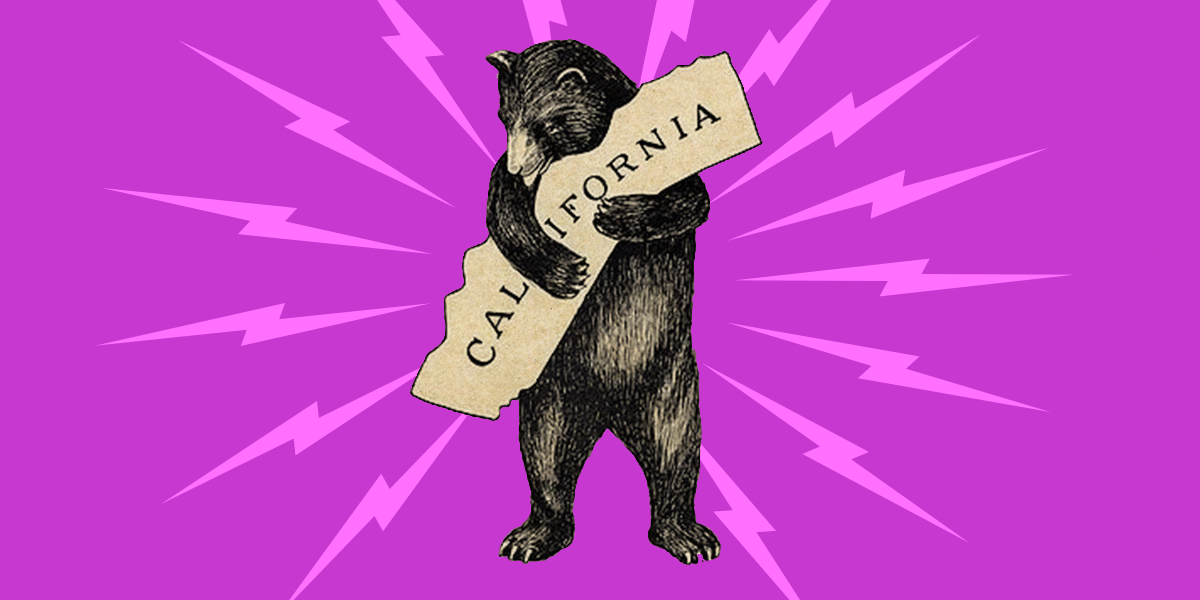California lawmakers are debating an ill-advised bill that would require internet users to show their ID in order to look at sexually explicit content. EFF has sent a letter to California legislators encouraging them to oppose Assembly Bill 3080, which would have the result of censoring the internet for all users.
If you care about a free and open internet for all, and are a California resident, now would be a good time to contact your California Assemblymember and Senator and tell them you oppose A.B. 3080.
Adults Have The Right To Free And Anonymous Internet Browsing
If A.B. 3080 passes, it would make it illegal to show websites with one-third or more “sexually explicit content” to minors. These “explicit” websites would join a list of products or services that can’t be legally sold to minors in California, including things like firearms, ammunition, tobacco, and e-cigarettes.
But these things are not the same, and should not be treated the same under state or federal law. Adults have a First Amendment right to look for information online, including sexual content. One of the reasons EFF has opposed mandatory age verification is because there’s no way to check ID online just for minors without drastically harming the rights of adults to read, get information, and to speak and browse online anonymously.
As EFF explained in a recent amicus brief on the issue, collecting ID online is fundamentally different—and more dangerous—than in-person ID checks in the physical world. Online ID checks are not just a momentary display—they require adults “to upload data-rich, government-issued identifying documents to either the website or a third-party verifier” and create a “potentially lasting record” of their visit to the establishment.
The more information a website collects about visitors, the more chances there are for such data to get into the hands of a criminal or other bad actor, a marketing company, or someone who has filed a subpoena for it. So-called “anonymized” data can be reassembled, especially when it consists of data-rich government ID together with browsing data like IP addresses.
Data breaches are a fact of life. Once governments insist on creating these ID logs for visiting websites with sexual content, those data breaches will become more dangerous.
This Bill Mandates ID Checks For A Wide Range Of Content
The bar is set low in this bill. It’s far from clear what websites prosecutors will consider to have one-third content that’s not appropriate for minors, as that can vary widely by community and even family standards. The bill will surely rope in general-use websites that allow some explicit content. A sex education website for high-school seniors, for instance, could be considered “offensive” and lacking in educational value for young minors.
Social media sites, online message forums, and even email lists may have some portion of content that isn’t appropriate for younger minors, but also a large amount of general-interest content. Bills like California’s that require ID checks for any site with 33% content that prosecutors deem explicit is similar to having Netflix require ID checks at login, whether a user wants to watch a G-rated movie or an R-rated movie.
Adults’ Right To View Websites Of Their Choice Is Settled Law
U.S. courts have already weighed in numerous times on government efforts to age-gate content, including sexual content. In Reno v. ACLU, the Supreme Court overruled almost all of the Communications Decency Act, a 1996 law that was intended to keep “obscene or indecent” material away from minors.
The high court again considered the issue in 2004 in ACLU v. Ashcroft, when it found that a federal law of that era, which sought to impose age-verification requirements on sexual online content, was likely unconstitutional.
Other States Will Follow
In the past year, several other state legislatures have passed similar unwise and unconstitutional “online ID check” laws. They are being subject to legal challenges now working their way through courts, including a Texas age verification law that EFF has asked the Supreme Court to look at.
Elected officials in many other states, however, wisely refused to enact mandatory online ID laws, including Minnesota, Illinois, and Wisconsin. In April, Arizona’s governor vetoed a mandatory ID-check bill that was passed along partisan lines in her state, stating that the bill “goes against settled case law” and insisting any future proposal must be bipartisan and also “work within the bounds of the First Amendment.”
California is not only the largest state, it is the home of many of the nation’s largest creative industries. It has also been a leader in online privacy law. If California passes A.B. 3080, it will be a green light to other states to pass online ID-checking laws that are even worse.
Tennessee, for instance, recently passed a mandatory ID bill that includes felony penalties for anyone who “publishes or distributes” a website with one-third adult content. Tennessee’s fiscal review committee estimated that the state will incarcerate one person per year under this law, and has budgeted accordingly.
California lawmakers have a chance to restore some sanity to our national conversation about how to protect minors online. Mandatory ID checks, and fines or incarceration for those who fail to use them, are not the answer.
Further reading:



